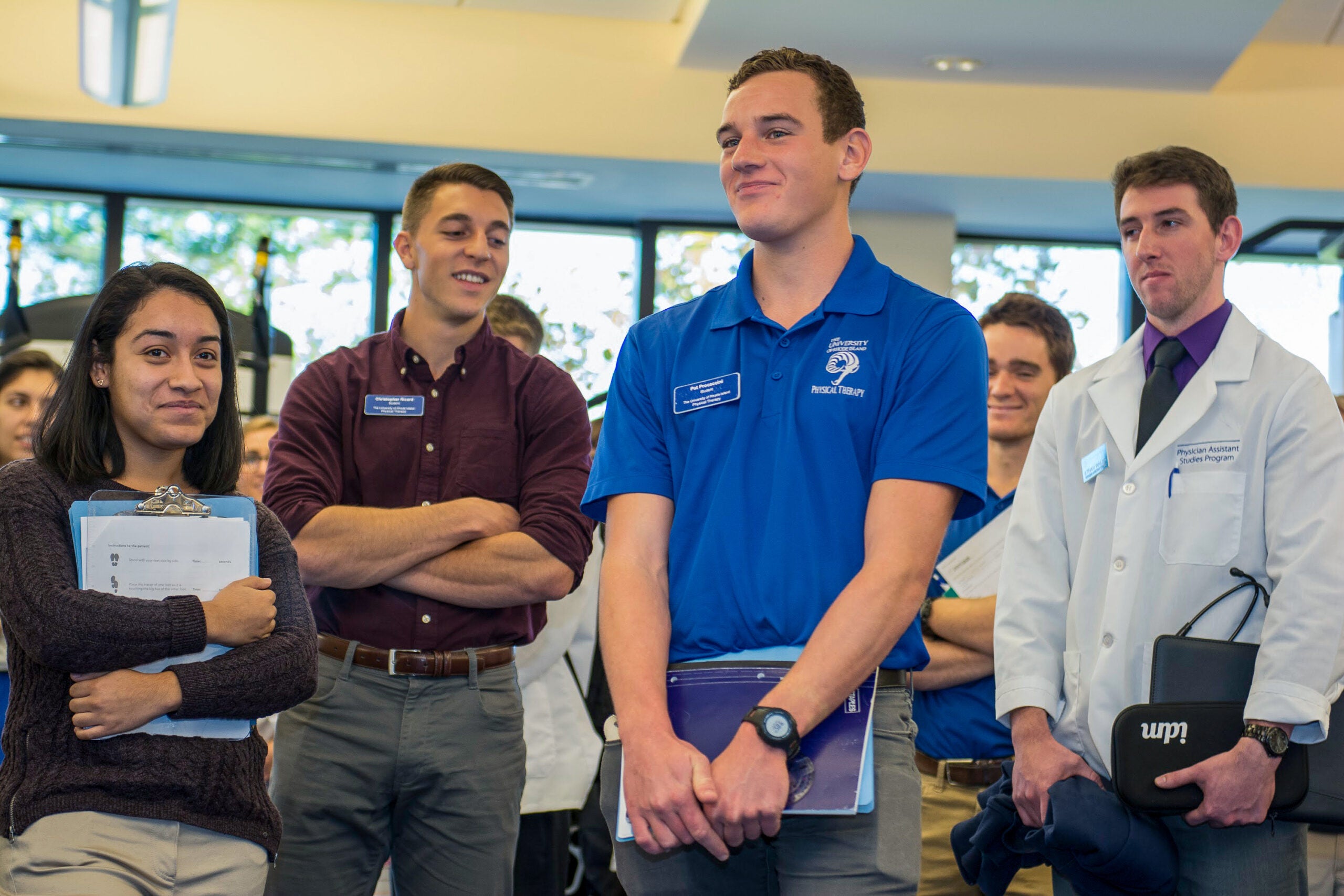New interdisciplinary major prepares graduates to improve health status and health behaviors in community
Since the world experienced a global pandemic, there has been not only a greater appreciation of health care clinicians, but a better understanding of public health and its role in preventing disease, setting policies that impact a population’s health, and generally promoting well-being on a broad level.
That greater awareness has helped push public health into the forefront of the larger health care environment, and it is among the fastest growing undergraduate majors in the country. Addressing the increased interest and the need for more public health practitioners in the community, the University of Rhode Island College of Health Sciences is introducing a new Department of Public Health, which will help train the next generation of health care policy makers.
“These graduates will have the skillset to be change-makers in society,” said Mary Greaney, professor and chair of the new department, which will welcome its first students in the fall 2024 semester. “We know having this trained workforce can improve health status and health behaviors. They can work in policy, health promotion, epidemiology, and more. It’s a degree that really sets you up to find your path and your passion in health and well-being.”
Public health takes a broad view of health and the factors that promote it, as well as those that hinder it. It encompasses overarching health policy, such as vaccine guidelines, as well as simpler standards like installing a stop sign to prevent accidents or placing a water fountain along a bike path to help people stay hydrated. It includes epidemiology, the social determinants of health, disease prevention and more.
“The new major will provide students with the knowledge and skills to understand and address important population health challenges from the structural down to the individual level,” Greaney said. “It’s policy and practice. Human behavior is impacted by people around you, but also by policies, the community you live in, all of that is public health. Our graduates leave with a real passion to make their communities healthier places.”
Several graduates of the College are already working in public health after having completed a degree in health studies, which the new major will replace. Alumna Shade Olowookere, a public health advisor at the federal Centers for Disease Control and Prevention, said public health includes a multidisciplinary approach to health and well-being, which is reflected in the major’s curriculum. Students in the program also take classes in departments throughout the College of Health Sciences, plus the College of Pharmacy and College of the Environment and Life Sciences.
“It is a credit to the department that they structure the coursework with other departments in the University because I see that in my day-to-day,” Olowookere said. “When we think about public health, it’s really involving all the pillars that go into establishing health policy. COVID gave a good example of how interconnected we are, and I think it really put a spotlight on the importance of public health and global health.”
A society’s health is determined by factors like the environments people live in, the food they eat, the quality of the air they breathe, and the basic resources available to them, according to alumna Heidi Weidele, a public health epidemiologist at the Rhode Island Department of Health. It’s important for students to learn the significance of all those connections, she said.
“Public health is much more multifaceted than a lot of us think,” Weidele said. “It’s really important that students learn how our own well-being is connected with communities. Teaching students about public health can also help them figure out paths they can pursue in such a vast field of work.”
A public health major also further raises the credibility of URI’s health sciences offerings, according to Rachael Musch, a health and wellness specialist at URI Health Services who also graduated from the college.
“The significance is huge. Having a public health program really says a lot about a university and the students who are going to come here,” Musch said. “I’m really happy to say I not only came from public health as an educational background, but I get to work in it as well. I’m genuinely excited for the college. It’s truly significant to the University as a whole.”
To learn more about the new Department of Public Health and apply, visit the department page on the College of Health Sciences website.

